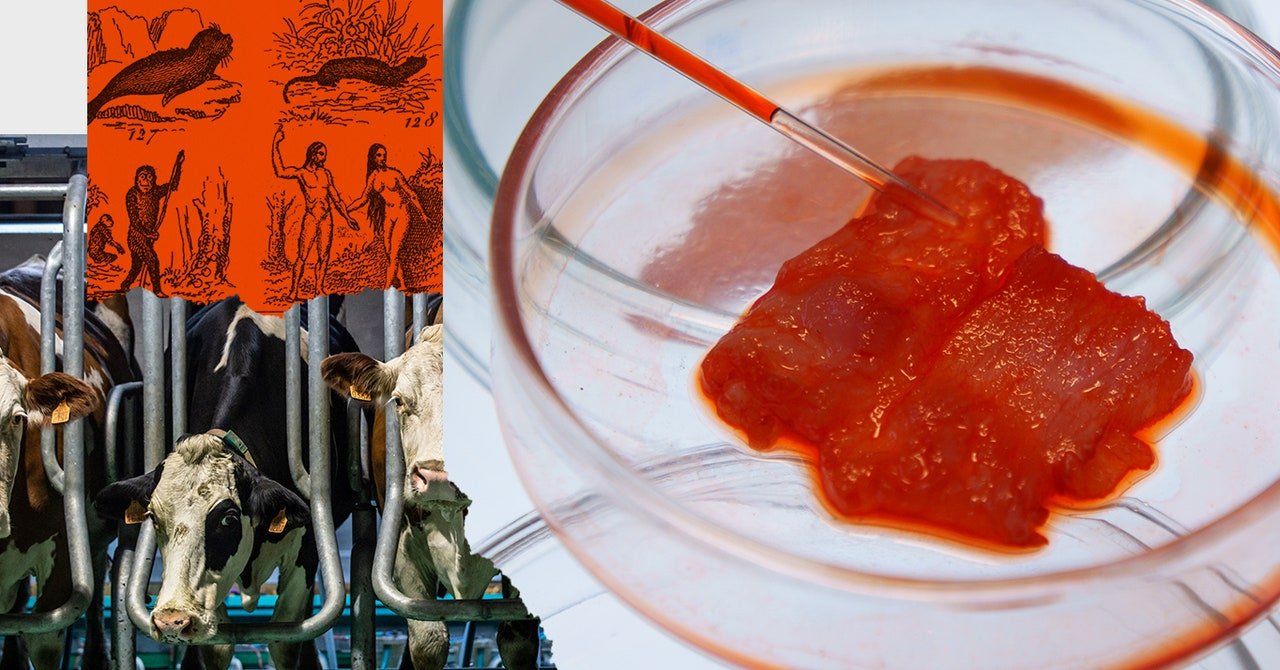I wish I’d gotten into veganism through an epiphany about the right of animals to be human or recognizing the environmental harms of animal husbandry. But I didn’t. What made me go vegan was a night of vomiting caused by undercooked ostrich. It was Glastonbury Festival 2019. At 21, hungover and hungry I thought I’d get a snack from the only vendor at the festival with no queue. Later, while huddling in a portaloo and staving off hallucinations of ostrich slaughter, I vowed never to eat meat again.
Today I eat the same as many vegans. My diet is driven by my desire to avoid animal suffering and environmental damage, but unlike some vegans, I have no aversion to meat. I know my taste buds would explode with pleasure if I tried salmon again, but I hold myself back because I don’t believe my right to life trumps that of any other animal. believe me me want eat meat again. But I won’t.
That is, I will not eat meat from a living animal. When I learned that the US Food and Drug Administration had cleared lab-grown meat, I was overjoyed. Meat, grown like a plant, without suffering… Immediately, I imagined future Christmas dinners: lab-bred turkey with a side of cranberry sauce.
But when I shared my excitement with my vegan friends, they balked. Everyone felt betrayed. Ella Marshall, associate brand manager for the Vegan Society, the world’s oldest vegan association, told me in an email that “we cannot officially endorse cultured meat as animals are still used in its production […] we could not register such products with the Vegan Trademark.”
I was naïve to think that vegans would embrace cultured meat. Veganism is a broad church, filled with different interpretations. Accordingly, with the availability of lab-grown meat as a cheap, sustainable form of protein that does not require animal cruelty, veganism will face an identity crisis. There will be conflicts between vegans, whose philosophy is defined by simply abstaining from animal products, and those who believe in a more radical restructuring of our relationship with wildlife.
Ultimately, arguments against cultured meat could impede the progress of animal liberation. Vegans should not allow this. If we want to end animal exploitation, it’s our moral duty to label lab-grown meat vegan, even if it annoys us.
If you read science fiction, the idea of lab-grown meat might not seem so odd. Writers from Philip K. Dick to Douglas Adams have explored the technology. But how does this work in real life?
To grow meat, stem cells are taken from an animal and grown in bioreactors. Although these biopsies are invasive, the process is less painful than many of the procedures an animal might endure during its lifetime on a farm and, importantly, the animal is not killed. In the bioreactors, the cells are made to believe they are still in an animal’s body because they are maintained in a substrate made up of nutrients such as amino acids, vitamins, carbohydrates and proteins. Once the meat is grown, the product is harvested and processed into whatever form the manufacturers wish to sell. Manufacturing costs have fallen since the first $375,000 burger was eaten in 2013. While still expensive compared to conventionally raised meat, the cost decline is radical and will continue. Ultimately, lab-raised meat could become more affordable than traditionally raised animals.
Vegans should love this new technology. Its potential to reduce everything from animal suffering to greenhouse gas emissions makes the technology, if not revolutionary, at least a useful tool in the fight against climate change.
Source: www.wired.com
Don’t miss interesting posts on Famousbio










